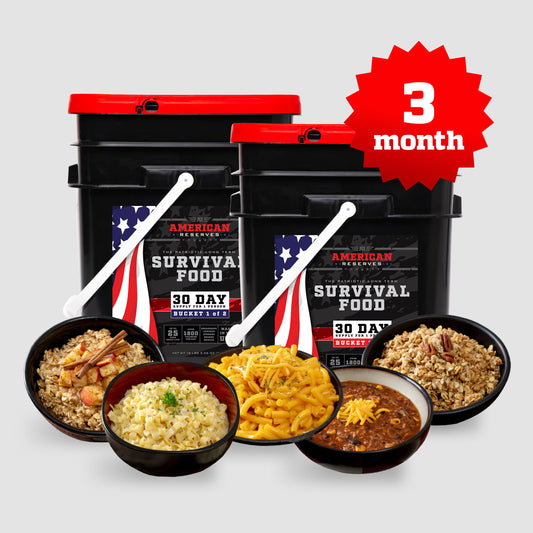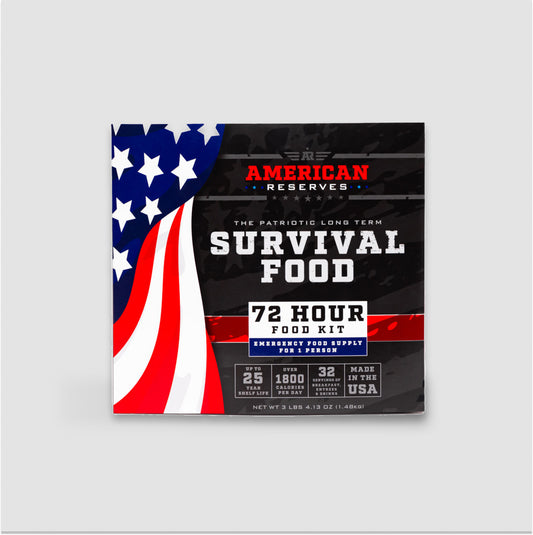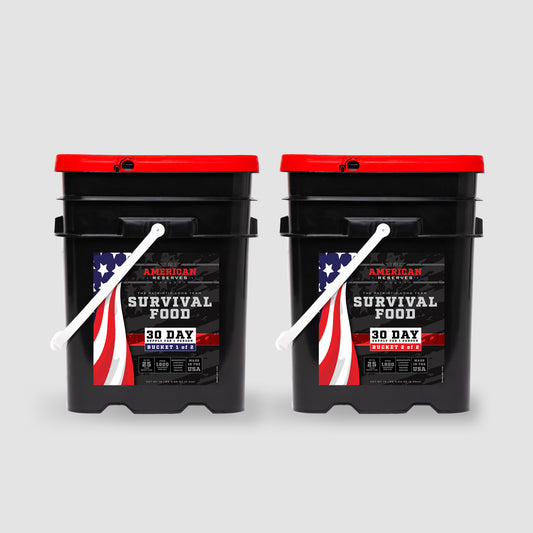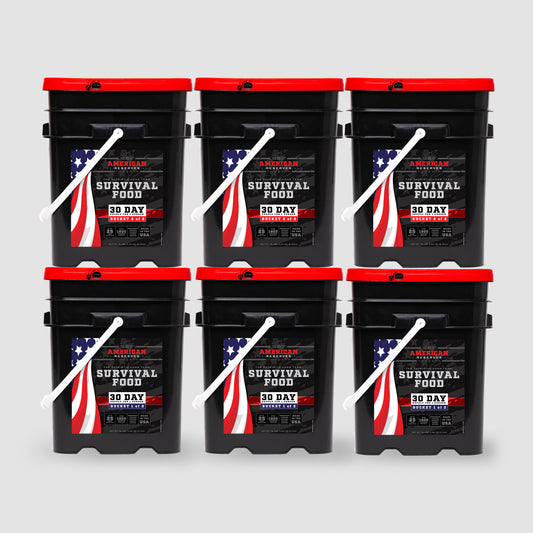
How Long Can You Go Without Water: Survival Insights
Life's essential is water, hence in survival situations it becomes the most valuable resource. Anyone who appreciates self-reliance and preparation must know how long they can go without water. This page explores the science of dehydration, warning signals to look for, and doable strategies for locating and preserving water in the wild. Whether you are starting an outdoor excursion or dealing with a natural disaster, these survival tips can help you to properly control hydration and increase your chances of survival.
Importance Of Having Water During a Survival Situation
The foundation of life is water, which also is very important for regulating body processes including waste disposal, digestion, and temperature control. The need of water in a survival scenario cannot be emphasized since dehydration can cause serious medical problems including organ failure, heatstroke, and poor cognitive ability. Without adequate hydration, the body's ability to perform even basic tasks diminishes rapidly, reducing one's chances of survival. Therefore, understanding how to secure and conserve water is essential for anyone facing emergency conditions, ensuring they remain physically and mentally capable of overcoming challenges and staying alive.
How Long Can You Go Without Water?
The human body can typically survive without water for about three to five days, though this duration can vary based on factors such as climate, physical activity level, and individual health. Water is essential for critical bodily functions, including temperature regulation, nutrient transport, and waste removal. Dehydration sets in quickly, with symptoms like dizziness, confusion, and rapid heartbeat appearing within just a few hours of water deprivation. As dehydration progresses, it can lead to severe complications such as kidney failure, heatstroke, and even death. Therefore, understanding the limits of water deprivation is crucial for anyone in a survival situation, emphasizing the need to prioritize finding and conserving water to sustain life.
What Is The Longest Someone Has Gone Without Water?
The longest documented case of a person surviving without water is typically cited as lasting between 17 and 18 days, though such instances are extremely rare and often involve unique circumstances. These cases usually occur in controlled environments where the individual is at rest and not exposed to extreme temperatures or physical exertion. The human body’s resilience in these situations is remarkable, but it is important to note that severe dehydration can cause irreversible damage to organs and cognitive functions long before the ultimate limit is reached. These extraordinary survival stories underscore the critical importance of water and highlight the body's incredible, yet finite, capacity to endure extreme conditions.
What Happens If You Go 3 Days Without Water?
Immediate Effects on the Body
Going three days without water can have severe immediate effects on the body. Within the first 24 hours, you may experience symptoms such as dry mouth, fatigue, and decreased urine output. As dehydration progresses, these symptoms intensify, leading to dizziness, confusion, and rapid heartbeat. The body's ability to regulate temperature diminishes, increasing the risk of heatstroke, especially in hot environments. By the third day, the lack of water severely impairs cognitive and physical functions, making it difficult to perform even basic survival tasks.
Impact on Organs and Systems
Dehydration over three days significantly impacts vital organs and bodily systems. The kidneys, responsible for filtering waste, begin to fail, leading to a dangerous buildup of toxins in the blood. The cardiovascular system struggles to maintain blood pressure and circulation, which can result in shock. The digestive system also suffers, as the lack of water hampers nutrient absorption and waste elimination. These systemic failures highlight the critical need for water to sustain life, maintain bodily functions, and support metabolism.
Long-Term Consequences
The long-term consequences of going three days without water can be dire. Prolonged dehydration can cause permanent damage to organs, particularly the kidneys and brain. Cognitive functions may be impaired, leading to long-lasting issues with memory and concentration. Additionally, the body's overall resilience and ability to recover from illness or injury are compromised. Understanding these long-term risks underscores the importance of prioritizing hydration in any survival situation to avoid irreversible harm.

72 Hour Emergency Food and Drink Supply - 32 Servings
$36.99

30 Day Emergency Food Supply
$319.99

3 Month Emergency Food Supply
$835.00
What Should My Daily Water Intake Be?
Daily water intake varies based on factors such as age, gender, weight, climate, and physical activity levels. Generally, health experts recommend that men consume about 3.7 liters (or roughly 13 cups) of water per day, while women should aim for 2.7 liters (or about 9 cups). These guidelines include all fluids consumed, not just water, and account for hydration from food sources like fruits and vegetables. It's important to listen to your body's signals, such as thirst and urine color, to adjust your intake accordingly. Staying adequately hydrated supports essential bodily functions enhances physical performance, and promotes overall well-being, making it a crucial aspect of daily health maintenance.
Does Sweat Mean I Need Water?
Yes, sweating is a clear indicator that your body needs water. Sweat is the body's natural mechanism for regulating temperature, especially during physical activity or exposure to high temperatures. When you sweat, you lose not only water but also essential electrolytes like sodium and potassium, which are vital for maintaining fluid balance and muscle function. Replenishing lost fluids by drinking water is crucial to prevent dehydration, which can impair physical performance, cognitive function, and overall health. Therefore, if you are sweating, it's important to increase your water intake to replace the fluids and electrolytes lost, ensuring your body continues to function optimally.
Survival Tips Without Water
- Minimize Physical Activity: Conserve energy and reduce water loss by limiting physical exertion, especially during the hottest parts of the day.
- Seek Shade: Stay in shaded areas to avoid direct sunlight, which can increase sweating and accelerate dehydration, both of which can negatively impact your life expectancy in survival situations.
- Cover Up: Wear lightweight, loose-fitting clothing to protect your skin from the sun and reduce sweat evaporation.
- Breathe Through Your Nose: Breathing through your nose instead of your mouth can help reduce water loss through respiration.
- Avoid Eating: Digestion requires water, so minimize food intake to conserve your body's existing water reserves.
- Use Moisture-Rich Plants: If available, use plants with high moisture content to extract small amounts of water.
- Collect Dew: Use absorbent materials like cloth to collect morning dew from plants and grasses.
- Utilize Solar Still: Create a solar still by digging a hole, placing a container in the center, covering it with plastic, and weighting the center to collect condensed water.
- Find Natural Water Sources: Look for signs of water such as animal tracks, green vegetation, and low-lying areas where water may accumulate.
- Purify Water: If you find water, ensure it is safe to drink by boiling, using purification tablets, or filtering to remove contaminants.
Conclusion
Anyone who wants to be ready for an emergency has to know how long they can survive without water and the vital need of hydration in such conditions. People can greatly increase their odds of surviving difficult circumstances by seeing the symptoms of dehydration, knowing how to locate and save water, and using sensible survival advice. Whether one wants to be more self-reliant, go on outdoor activities, or simply remain hydrated and resilient, these ideas help people to stay that way. Emphasizing water intake and having ready plans can help one make the difference between life and death and underline the critical need of water in maintaining life.
Final Thoughts
American Reserves brings expertise in emergency and survival to your doorstep. Our emergency food supply kits, crafted from high-quality, locally sourced ingredients in the USA, ensure you have the essential nutrition needed during critical times. Rely on American Reserves to keep you prepared for any situation—explore our collections today.
Sources


